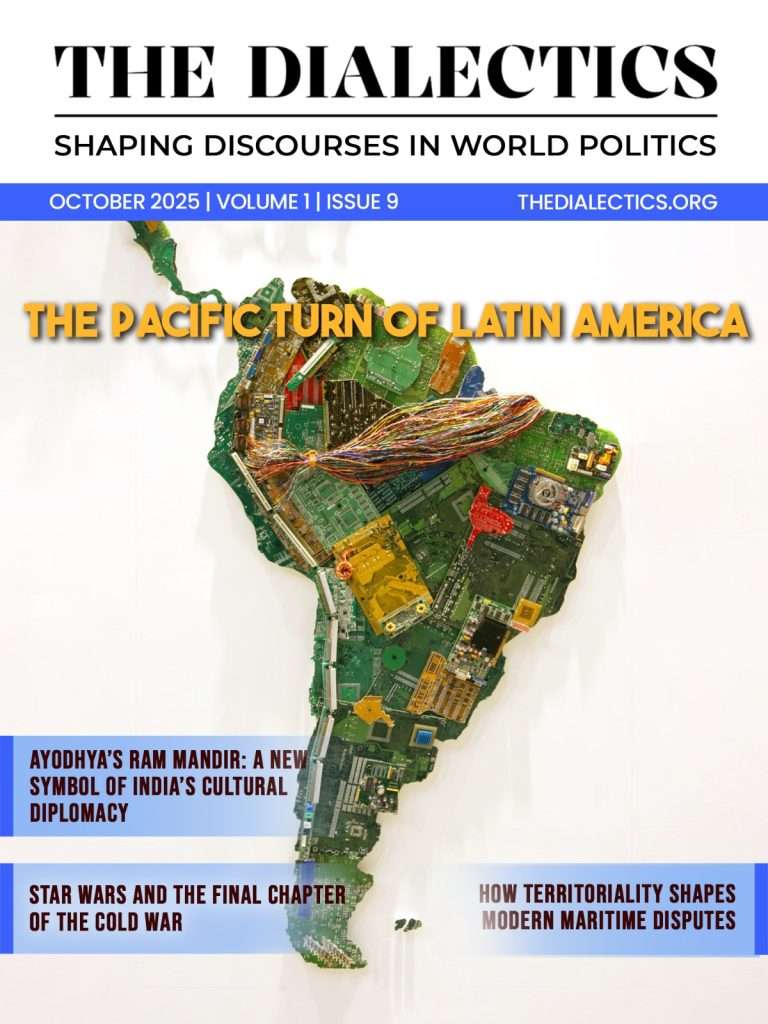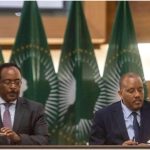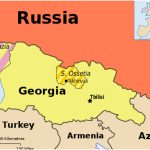Dark Indonesia: An amalgamation of several events
The ‘Dark Indonesia’ or Indonesia Gelap protest which initially erupted in the mid-February 2025, did not lose its ground till the end of March. The protest seeks to address the current situation of Indonesia’s flawed policies and raising corruption cases. Although the protest is restricted to certain parts of the archipelagic nation-state, but it did not fail to lose its rigor over time.
Primarily, this protest was against the President of Indonesia Prabowo Subianto Djojohadikusumo’s announcement on February 21 2025, which mentioned severe cuts in policies amounting to nearly US$ 19 billion. The cut in budget allocation has sparked severe protests across Indonesia. This major decision will affect the functioning of crucial sectors such as education, health and social welfare sector. Moreover, it acts as a bottleneck in work efficiency of the public-servants who will lose lighting or air-conditioning for some parts of the days or have fewer equipment to work with.
The week-long protest which started during mid-February 2025 has also triggered a simultaneous social media campaigning and is symbolic of the pessimism and bleak nature of the government policies. Most pressing concern is Prabowo’s order to reallocate the funds for free nutrition meals for school children to a new sovereign wealth fund Danantara. It point at the public frustration on the lack of transparency and diversion of funds to a miscellaneous scheme which is going to effect the human development in the coming times.
The protest is organized by the Student Executive Board- All Indonesia (BEM-SI) The student protests are also addressing the issue of expanding military participation in civilian roles and a lack of subsidized cooling gas. The protesters claim that Indonesia is not progressing towards its Indonesian Emas (Golden Indonesia) vision but is instead heading into darkness. The protestors have put forward 13 demands addressing a range of issues which includes education, expansion of military role in civilian positions, cracks down on corruption, austerity measures, asset confiscation laws and police reforms. It is doubtful whether the Prabowo administration is going to pay heed to the demands of the students.
Causes behind the Protest
The protest ‘Dark Indonesia’ can be better described as a snowballed event. There are certain policies which have been implemented by the Prabowo administration over the last six months, ever since he assumed the President’s office in October 2024.
In January 2025, a flagship universal free-meal programme amounting it around US$ 4.4 billion was launched so as to combat child malnutrition and boost economic growth. It is set to target 83 million children with an initial 17 million target by the end of 2025. The aim of the programme is to provide nutritious meals to school children and gradually extend its reach to toddlers and new expectant mothers. The intent which drives this programme is to address the issue of malnutrition and stunted growth. The population of Indonesia is currently suffering from three types of malnutrition such as undernutrition (stunting, wasting and underweight), overnutrition and micronutrient deficiency. However, given the mammoth budget of the programme, the analysts have warned that this might turn out to be an economic burden for the state’s finance and logistics. The National Nutrition Agency has already acknowledged the lack of adequate funds to cover the estimated population of school children. It is going to cost US$28 billion if the Indonesian government goes ahead to cater to 83 million children in the coming times. Although, the government’s motive was to address a vital health cause among school going children which does invariably impact the human development index in the longer run; however if the issue of funds continue to exist in the coming time it might challenge the durability and sustainability of the free meal programme. Additionally, from the aspect of nutrition, every type of malnutrition needs different methods to address the same. Providing a mid-day meal is a good initiative but it is not going to eliminate the larger problems of malnutrition which also needs adequate medical attention.
As the Prabowo administration seeks to continue this initiative by slashing budget allocation in other key areas of human development, just focusing on one initiative cannot be a one stop solution for all problems.
In addition, there are speculations that Indonesia is going to witness the backsliding of democracy in the coming times. The recent transformation and regional expansion of the Indonesian Army (TNI-AD) has become a serious concern among the citizens. The ongoing structural and operational changes has sparked concerns about the possible resurgence of “dual function” (dwifungsi)- a doctrine that positioned the military as a dominant force in both defence and civilian governance. After President Suharto stepped down in 1998, the Indonesian military shifted from performing dwifungsi toward the sole function of protecting the state.
The state has gone through tumultuous times which witnessed military coup and totalitarian rule led by military general from 1965 until 1998. Currently, there are continuous attempts which are being made to push for the revision of Law No. 34/2004 on the TNI which will invariably expand the scope of the role of the TNI to hold 16 government positions and assume non-combat roles.
However on 20th March, the Indonesian Parliament passed these controversial revisions to the state’s military law which will now enable military officials to hold civilian posts. In addition, these changes allow military officials to hold several key administrative positions and has also increased the retirement age limit of the military officials. This will definitely push the state to be more reliant on military power and authoritarian measures to suppress dissent and maintain control. Nevertheless, early on there were speculations that Indonesia may see a rise in wave of authoritarian politics as now Former Military General Prabowo was about to assume the position of President. If the lines between political and security interests are compromised, then Indonesia is going to witness erosion of public trust in democratic institutions and weakening of the checks and balances system which is essential for a healthy functioning democratic system. In short, currently Indonesia is witnessing creeping militarisation which in turn is indicating towards a ‘New Order’ which is taking shape.
On the other hand, Amsterdam based- Organized Crime and Corruption Reporting Project (OCCRP) has named Joko Widodo, the former President of Indonesia as the individual who have “done the most advanced crime and corruption globally thus damaging democracy and human rights”. Along with this, many political scandals have come to light recently. Scandals involving hundreds of millions of dollars involving the Pertamina (the state oil company) as well as operations in the banking sector, palm oil sector, import and export segments etc. These cases were exposed by the Attorney-General’s Department and the Corruption Eradication Commission. It has thrown light over the institutional loopholes and lack of transparency. In addition, President Prabowo’s opening of a new-state holding company-Danantara, have raised suspicion among the public.
Although the Prabowo administration has come under strong protests from the student community, whether continuing the protest will be taken seriously or be met with stringent actions by the government; will shape the contours of this protest in the coming times. There is no doubt that the protest erupted in the early months of the Prabowo administration and hence it is crucial to watch the upcoming developments of Dark Indonesia.




